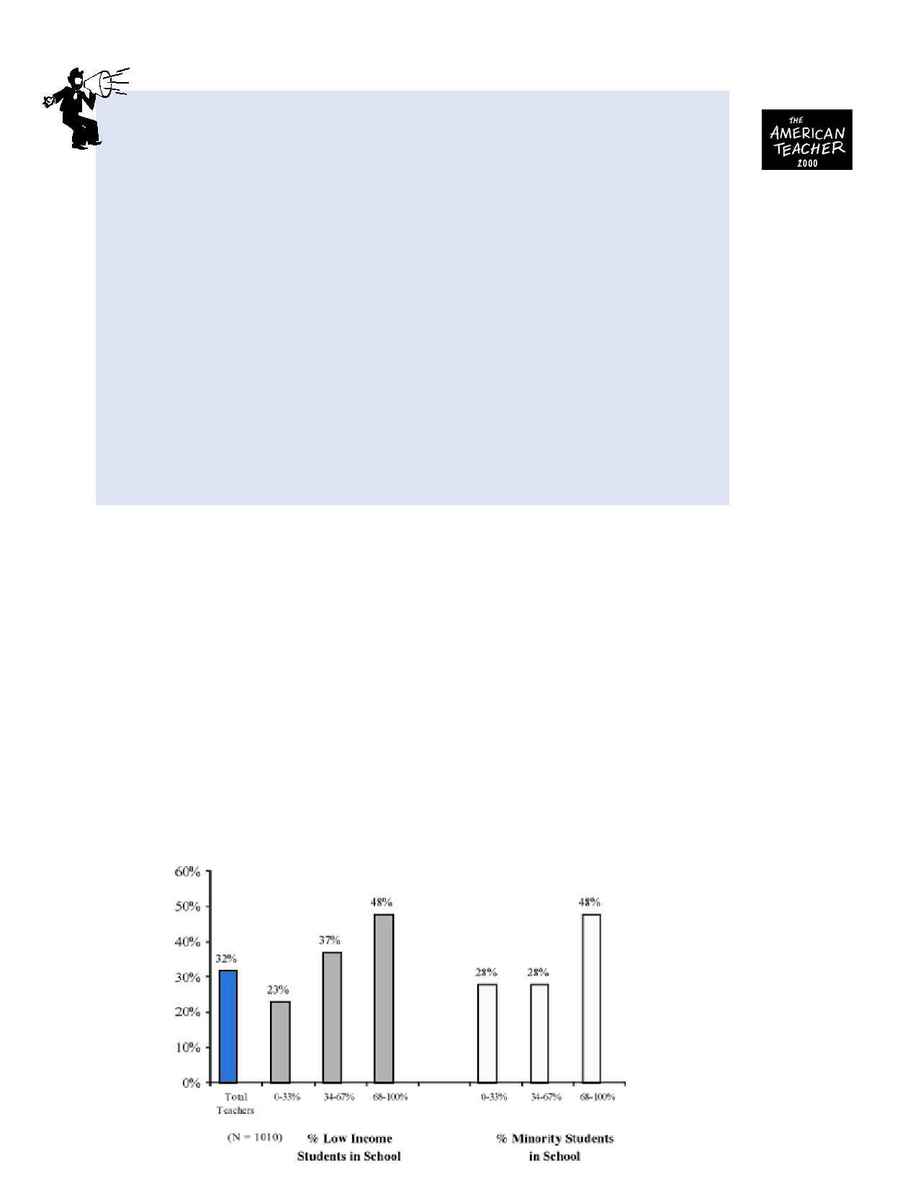CNN 2000ats Page 111

TEACHERS SPEAK OUT ON TEACHER TRAINING
One aspect of the teaching experience that may reduce feelings of alienation is train-
ing and mentoring. Several teachers mentioned this area when asked, "What
changes would you like to see occur that would improve the education you provide
your students"?
". . . Create effective mentoring programs for young teachers. It often takes three
years or so to become a good teacher."
~
". . .Teacher training, it seems, needs to incorporate even more real time hours of stu-
dent teaching within the classroom. . ."
~
". . . Furthermore, make my evaluation meaningful. I've taught for four years and
never been evaluated. . ."
~
". . . Finally, teacher and administrator training to incorporate new technology. My
school is full of computers--only a handful of us use them for more than occasional
word processing. This is not unusual."
What is the quality of education that schools are providing students? According
to nearly one-third of teachers (32%), their school has earned a "C" or worse overall
(Exhibit 11.3). As with feelings of alienation, teaching in schools with high propor-
tions of low-income or minority students impacts teachers' views on the quality of
education provided. Teachers whose schools consist of more than two-thirds low-
income students are twice as likely as those whose schools are less than one-third low-
income students to grade the quality of their school's education this way (48% vs.
23%). The same trend holds for schools with high vs. low proportions of minority
students (48% vs. 28%).
Exhibit 11.3
Overall Quality of Education
% "C" or "D" or "F"
Base: All teachers
103
